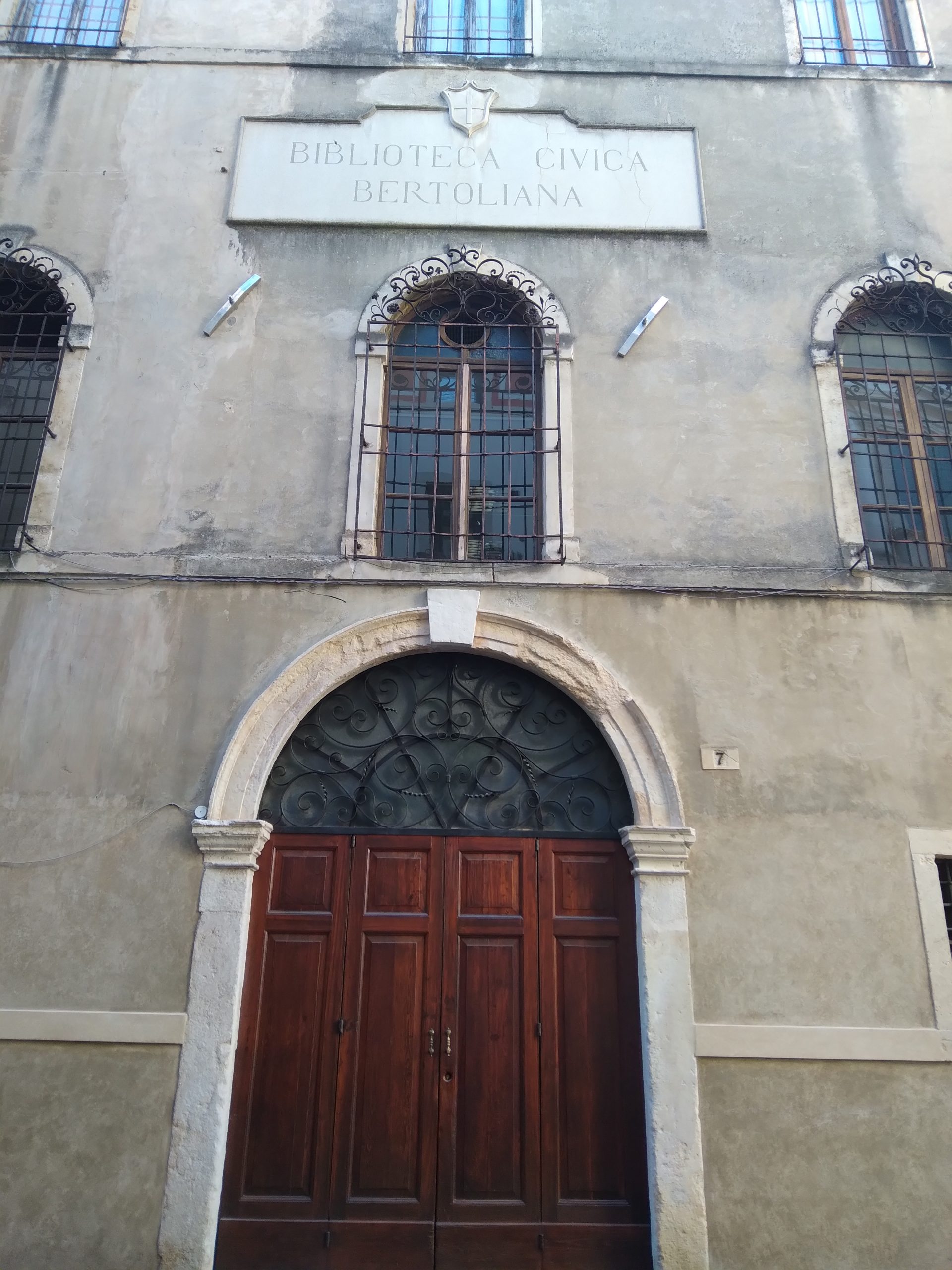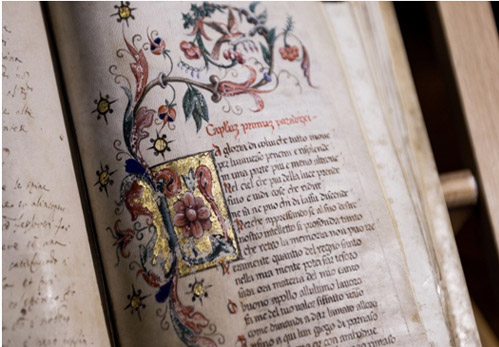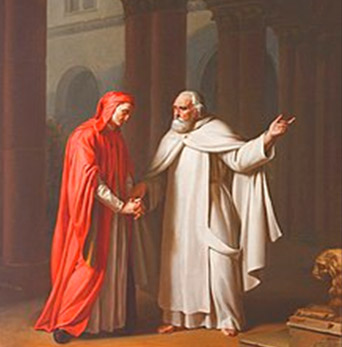
IN COLLABORATION WITH:


BERTOLIANA LIBRARY
THE CODE OF THE DIVINA COMMEDIA


We have never possessed the autograph manuscript of the Divina Commedia: it could be called the greatest mystery of Italian literature. Boccaccio recounts that Dante composed the first seven cantos of the Inferno while still in Florence, and they were then preserved and delivered by the faithful wife Gemma Donati to her husband. Boccaccio further reports of a letter from a certain Friar Ilario who tells of an unknown man, a guest at the Monastery of the Holy Cross in Bocca di Magra. This unknown man later introduced himself as Dante Alighieri, and it is said that he entrusted the Friar with the manuscript of the first canto.
Boccaccio again tells us the poet hid the manuscript of the last 13 cantos of Paradise in Ravenna. After Dante’s death, his son Jacopo fortunately finds the manuscript in a crack in the poet’s house in Ravenna.
This information has never been verified, although we know that Dante’s poem was already circulating: in a notarial register of 1317, drawn up in San Gimignano, some verses from Purgatory are transcribed. Soon, in Florence a large group of copyists and famous illuminators transcribed the three canticles into numerous copies on parchment: they were called “I Danti del Cento”.
The first manuscripts of the entire Poem that come down to us date around fifteen years after Dante’s death: the Landiano Codex, preserved in Piacenza, dates from 1336, while the Trivulziano Codex, made entirely in Florence and preserved in Milan, dates from 1337.
The Bertoliana Library in Vicenza holds a precious manuscript of the Divina Commedia on parchment from 1395, signed by the copyist Bivilaqua.
It comes to us in 1854 thanks to a donation from the Vicenza collector, Giuseppe Riva, after a rather heavy restoration by Ludovico Gonzati. He almost completely redid the miniatures of the Inferno and Purgatorio, leaving only those of the Paradiso intact.
It is an important document, to which Giorgio Petrocchi referred in 1965, for the 7th centenary of his birth, to draw up the new critical edition of the Commedia.



